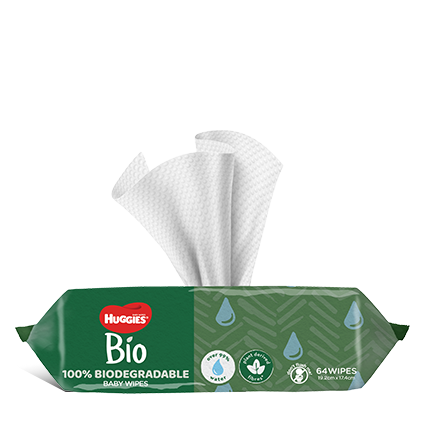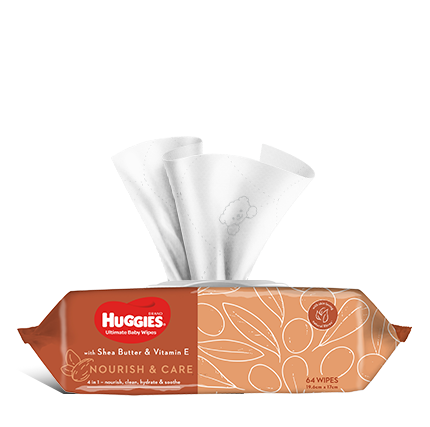You’ve passed the one month stage by now and the business of caring for your baby is likely to be getting a little easier. Some parents refer to the baby’s age by their weeks, others by the month. It doesn’t really matter but weeks tend to be more precise.
You could find that there is beginning to be a little more predictability in your days and nights. Your baby still won’t be in a set routine – that won’t come for a few more weeks – but there will be a pattern to how your life is flowing. This can make planning a little easier, not to mention being able to fit in some extra jobs which are demanding your attention.
Some parents are able to focus simply on what needs to be done and are able to leave non-urgent matters to sit and wait. Others are very task focused and see each day as an opportunity to complete lots of different jobs. Often, our training, personalities and professional lives have a major influence on how we approach our parenting.
Whichever way you view these early weeks, remind yourself every day that they pass very quickly. Housework can and will wait for you or someone else to do it. Your baby will only be 5 weeks old for 7 days, so make the most of this special time.
Feeding
If your baby is breastfeeding you will have developed skills around attaching your baby to the breast and ensuring it is sucking effectively. Although breastfeeding is a natural process, it can still take weeks before it becomes more comfortable and easy to manage.
If you find you’ve needed to stay at home until now because you haven’t felt confident breastfeeding in public, make some small steps to get outside and away from the house. Even doing this for an hour or so can be very energising.
If you are bottle feeding, the process of cleaning and sterilising the bottles and feeding equipment will have become second nature to you. Work out a system which is practical, works for you and minimises the amount of time you need to invest into it.
Many parents find preparing a day’s worth of formula in advance and storing it in the fridge is a good time saver. Do check the instructions on the can of formula. Some manufacturers recommend preparing each bottle immediately before feeding.
Sleeping
Your baby will probably be sleeping between most of its feeds, but perhaps not. Expect a couple of unsettled, wakeful periods each day when your baby may only be calm when you are holding it.
Remember to always place your baby on their back to sleep and use a cotton or muslin wrap to help stabilise it. If the weather is hot, you may find your baby only needs a nappy and singlet on underneath its wrap. If it is cold, avoid overheating by feeling your baby’s back, between its shoulders and also the back of its neck to gauge its temperature.
If your baby has slept well until now, try not to see this as an iron clad guarantee that it will always sleep well. Babies change their sleeping behaviours constantly and sleep will often reflect other changes which are going on in their life. Reaching a new developmental stage, changes in environment, feeding, routine or for no apparent reason at all, can mean parents need to adapt their care giving. Don’t let this erode your confidence though. Parenting is a constant process of learning and adaptation.
Behaviour and Development
Your baby may be starting to smile this week and will be trying to fix and focus on your face with its eyes. The best time to look for smiles can be in the morning when your baby first wakes or after they have been fed. Talk gently to them and get up close. Your baby’s vision is still immature and it won’t progress to being clearer until around 6 months of age.
Don’t forget to give your baby supervised tummy time each day. Place some toys around it, especially those which feature black, white and red. You’ll probably find your baby responds more readily to these hues.
Take lots of photos of this special age, you’ll be amazed when you look back on them at how small your baby was.
Involve your older children in the new baby’s care as much as possible. Sibling relationships are built out of time, exposure and lots of interaction. You can’t force your toddler to connect with their new sibling. Have trust that this will come in its own good time.
Crying
Lots of babies seem to find their lungs between weeks 5 and 6 and don’t find the off switch until close to 12 weeks. There are lots of reasons put forward for why babies cry. Some of the more popular state that crying is due to babies feeling overwhelmed by stimuli. This combined with overtiredness and being the only way they are able to communicate are probably the major reasons why.
If you find it challenging to hear your baby cry, you are not alone. Your baby’s cry is uniquely designed to be uncomfortable for you to hear. You are not meant to ignore it, so don’t try. Your baby is too young to change its behaviour as a result of how you care for it or what your responses will be.
Research has shown that babies cry less, and for shorter periods overall, when their parents respond promptly to them.
Hygiene
If it is summer and the weather is hot, don’t be afraid of bathing your baby a couple of times each day. Bathing is a great way of cooling off a hot, fractious baby and can fill in the time between feeds and sleeps. Use a soft, emollient bath wash which is less likely to dry your baby’s skin.
If you have noticed cradle cap on your baby’s scalp, make a point of washing their hair more often. Try using a small amount of baby shampoo or bath wash, lathered gently over their scalp and then rinsed off.
You can soften the crusts of cradle cap with some olive, almond or vegetable oil, which has been gently massaged in.
Don’t be frightened of doing any damage to your baby’s soft spot or anterior fontanelle. As long as you are gentle and don’t apply too much pressure you won’t do any harm.
Your Emotions
Try to take yourself and your baby outside every couple of days. Although it may be tempting to just stay in the house, it is important that you maintain some contact with the outside world. Humans are social creatures and new mothers are not meant to be isolated. Make a point of having some contact with a friend, a sister or someone you connect with this week. If there is an older sibling take your toddler and baby to the park for a run around, or over to a little friend’s place for a play.
Don’t become too worried if you find yourself a bit teary this week. Your hormones will still be stabilising from your pregnancy and it is common for new mothers to have mood swings.
Unless you have no appetite, feel yourself becoming very anxious, are having trouble sleeping or are feeling sad all the time, reassure yourself that some variation in mood is normal.
Your Physical Recovery
You’ll almost be feeling back to your old self by now. You should have recovered fully from the birth, even if your weight is still not back to its normal range. This can take up to 12 months and now is not the time to be cutting back on your eating.
If you are breastfeeding you may find you are permanently hungry and crave sweet foods. Try to fill your body with a wide range of healthy, energy sustaining foods which will help to nurture your body and your baby.
For more information see Baby weeks or Baby Care.
Last Published* December, 2022
*Please note that the published date may not be the same as the date that the content was created and that information above may have changed since.
















